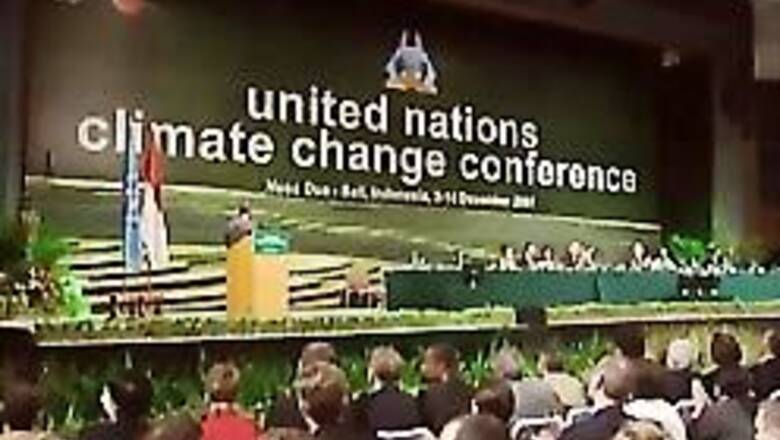
views
When you get 190 countries to agree on something it's got to be a big deal. More so if the interests of those involved are at variance.
At the fag end of the UN Climate Change Conference in salubrious environs of Bali in December last, the nations reached a last-gasp decision to clear a roadmap to combat climate change (read global warming). Coming after the successful Montreal Protocol, hitherto best environmental pact that targeted ozone-depleting substances, the Bali accord set a global aim to negotiate slashing greenhouse gas emissions by up to 40 per cent over the next decade.
Breaking the barrier wasn't easy. Agreeing to reduce the emissions was tough because the issue involved economic ramifications. For most countries reducing emissions meant halting development. During the negotiations, lined up against China, India, Brazil and various Gulf nations were advanced nations led by the United States -- world's top emitter of greenhouse gases. The question was "Who was to pay the price for causing damage to the environment?"
Developing countries did not want to stymie their recently accelerated economic growth and therefore wanted the US to take the lead in reducing emissions. But the American contention was that bringing emissions to zero in the developed world would not have a significant impact on the temperature trend if the major parts of the developing world wouldn’t act as well. A high melodrama full of jeers and tears ensued.
The impasse was broken after United Nations Secretary-General Ban Ki-moon took the extraordinary step of addressing the delegates, urging them to compromise in the interests of the world. What happened next was described by a delegate as akin to snatching victory from the jaws of defeat. The US and other developed nations caved in the clinched deal ensured that India and others would not have to meet binding targets for cuts in greenhouse gas emissions. The Western world was willing to the first big step. To quote the words of exultant Minister for Science and Technology Kapil Sibal, “we (saw) a united world moving beyond Bali and that I think is the victory of the conference."



















Comments
0 comment